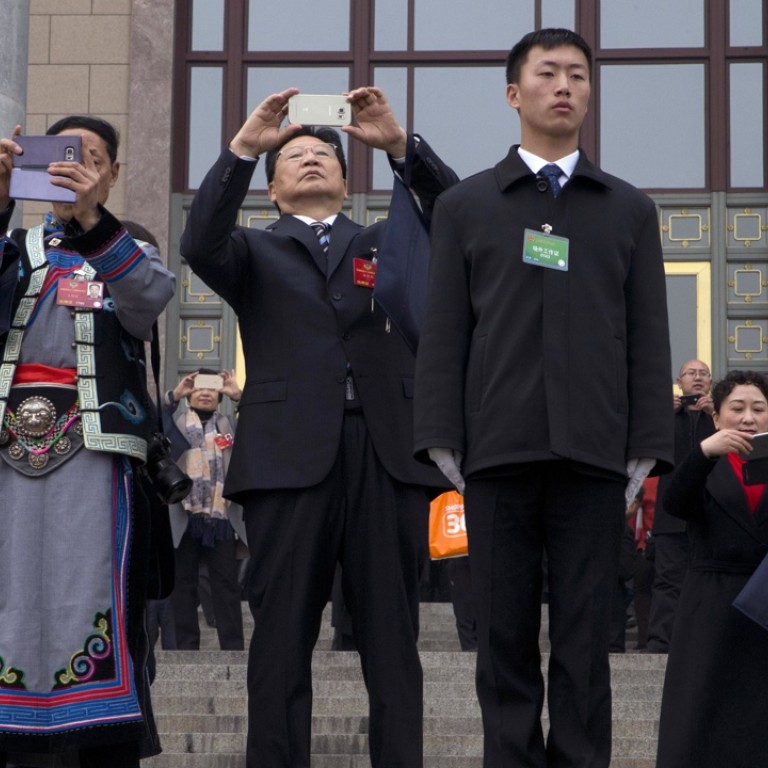
Head of top think tank proposes ‘super regulator’ after push by Xi
Industry insiders doubt further centralisation of decision-making will fix problems
A top economic think tank has proposed setting up a super regulator overseeing the finance industry, but industry insiders said it would be of more political significance than economic.
Chi Fulin, president of the China Institute for Reform and Development and also a member of the Chinese People’s Political Consultative Conference (CPPCC), has submitted a proposal suggesting that the three commissions supervising the mainland’s securities, banking and insurance markets be merged.
“China should set up a general authority supervising the whole finance system as soon as possible,” his proposal for the CPPCC’s annual meeting in Beijing says. “The industries of banking, securities and insurance are overlapping and becoming more interactive with each other as the use of internet becomes wider.”
Debate over whether to merge the China Banking Regulatory Commission, China Securities Regulatory Commission(CSRC) and China Insurance Regulatory Commission was fuelled by last summer’s stock market meltdown.
Some scholars also suggested that the mainland’s central bank, the People’s Bank of China (PBOC), be merged into the super regulator as its leader.
Even the CSRC sees different departments in conflict with each other on rule setting, imagine how hard it would be to manage and coordinate a mega regulator
Finance regulatory sources said President Xi Jinping had been pushing for the restructuring, but the move might not help to address regulatory difficulties, even though it would create a more centralised decision-making structure.
“Currently, the PBOC and three commissions meet monthly to exchange their opinions on overall market regulation,” a senior CSRC official told the South China Morning Post. “I do not see how the super regulator can improve from now, when it becomes bigger in size, making communication even more complicated with vested interest from different departments.
“Even the CSRC sees different departments in conflict with each other on rule setting, imagine how hard it would be to manage and coordinate a mega regulator.”
In November, when delivering blueprint for China’s 13th five-year plan, Xi said “recent volatilities on the capital markets” proved the existing finance supervisory structure did not fit the industry’s development, and it would have to be reformed to prevent systemic risks.
Former PBOC adviser Li Daokui, a professor at Tsinghua University, said on the sidelines of the CPPCC meeting that coordination between the central bank and financial regulators should be improved, “but it doesn’t mean merging them together”.
Zhang Xiaoqiang, a former vice-chairman of the National Development and Reform Commission, who used to oversee China’s overseas investments, said the merger of the central bank and regulators was “a grand issue” that required “in-depth research”.
The mainland stock benchmark rallied more than 130 per cent between September 2014 and mid-June last year, fuelled by formal and informal leveraged buying. But it crashed by more than 40 per cent from the peak in the following two months, leading to public criticism of the CSRC’s ability to monitor abnormal market activity and react quickly.
Meanwhile, the sharp devaluation of the yuan in mid August and early January, which was accompanied by further stock market volatility, also led to complaints of a lack of communication between the CSRC and PBOC.

